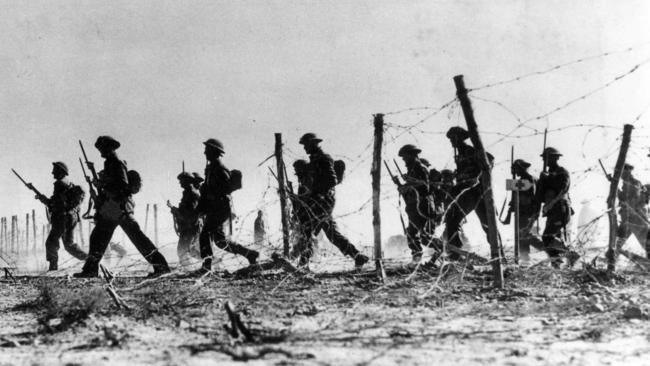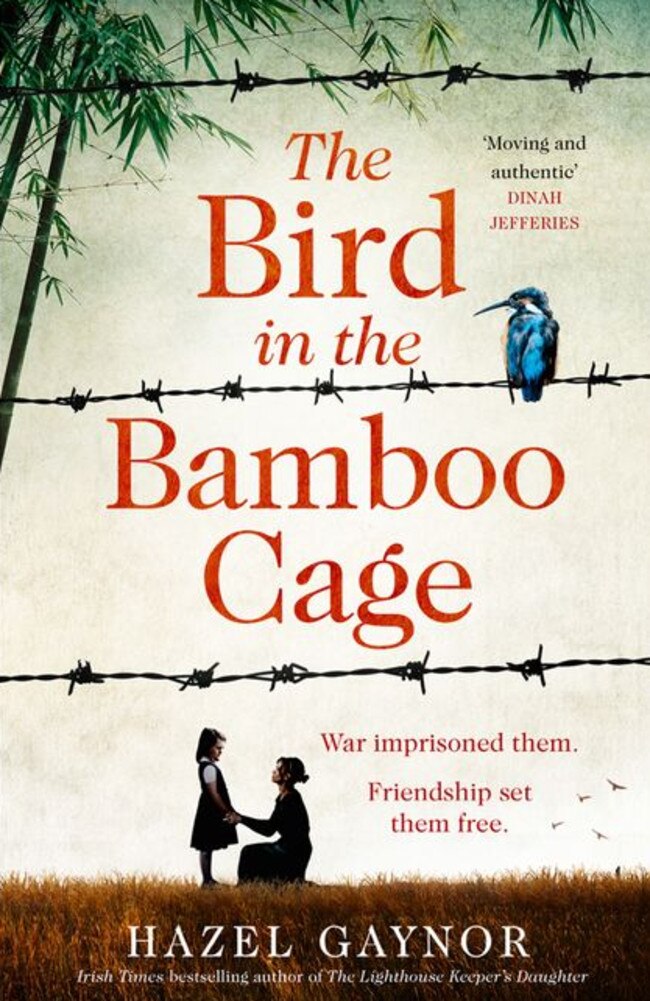Hazel Gaynor on the wartime letters that helped her reveal a soldier’s fate
With her latest work set in World War Two, Hazel Gaynor discovered her own connection to that conflict — resolving a family story and bringing comfort to a 100-year-old woman.

Books
Don't miss out on the headlines from Books. Followed categories will be added to My News.
When was the last time you sent a handwritten letter to someone, or received one? If you’re anything like me, you probably can’t remember; and yet I miss letters and postcards, that particular sense of someone having taken the time to sit with pen and paper and share their news, hopes, fears, love. There’s a wonderful permanency about a handwritten note, and I bet I’m not the only one who has a stack of special letters, hidden away in an old shoebox under the bed.
Over time, the letters we send and receive take on even more importance. I still have some of the last letters my mum wrote to me while she was recovering from cancer when I was in my early twenties. That she passed away only weeks later makes them all the more poignant when I look back on them now. They are my greatest treasure, a link that connects me instantly back to her every time I read them. I still have love letters from a dear ex-boyfriend from our teenage schooldays, made all the more special after he was tragically killed in the Indian Ocean tsunami, in Phuket, on 26th December 2004. I have old postcards from my sister when she was travelling around New Zealand, and letters she sent to me when I lived in Australia for a year.

These were the days before smartphones and text messages and WhatsApp chat groups, and I’m so glad of that.
Letters have been important to me all my life, it seems, and a particular set of letters, written during WWII, sent me on a very emotional journey of discovery.
Between October and December 1942, my great-grandmother wrote a number of letters to her youngest son, Jack, who was reported as missing in action shortly after leaving home to fight for the British Army with his regiment from East Yorkshire. Jack, aged 25, was sadly never found and, heartbreakingly, my great-grandmother’s letters to him were all returned to her, marked simply, “To Mother”. Seven of these letters survive, and have been passed down through the family over the decades. In 2017, my father gave them to me.
Reading my great-grandmother’s unimaginable anguish, her desperate worry for Jack and her agony in not hearing from him, had a profound impact on me, and made me think about war in a different way. Her words made me realise that the pain of separation, of not hearing from loved ones for months, years, or ever again, wasn’t something that had happened to strangers in grainy black and white photographs, but had happened to my own family; to a mother, like me. Much of what we know about the world wars comes from the letters and diaries of ordinary people caught up in those extraordinary events. Without these personal reflections, we wouldn’t have such an intimate knowledge of how war affected those who lived through it.
As a historical novelist, I spend a lot of time walking in the shoes of those who have lived through world-changing events, but I’d never really walked through the history of my own family. Reading my great-grandmother’s letters left me with an awful sense of an open wound. Where did Jack go? What had happened to him? This was a man I’d never met, and a woman I only had vague memories of, and yet the family connection was so real and raw. I set out to find Jack, but Google searches drew a blank. The letters were put aside.

In February this year, I stumbled across a Twitter account for the Commonwealth War Graves Commission. The website led to a simple search screen, with one of the search options being Regiment Number. I had that number. My great-grandmother had written it on the front of every envelope she’d sent to Jack. I entered the number, hit search, and there he was. Jack David Elvidge. The family had always believed he was lost in France, but he wasn’t. He was in North Africa, in Tunisia, so very far away from his mother and his quiet Yorkshire home. His final resting place is marked with a memorial plaque, noting his age and the date of his death. He died on the day great-grandma wrote her final letter to him.
Dec 27, 1942
My dear Jack, Where in the world are you? I keep writing and still no news of you. We are all ears at news time but seldom glean any news about your special team. How did you spend Christmas? We are all thinking of you … Everybody here has victory on their lips now, but I keep on looking for you. It does seem such long months since you went away.

Before my grandma passed away in May, shortly after reaching her 100th birthday, we were able to tell her we’d found her brother’s final resting place, and show her the photograph of his memorial plaque. It gave her great comfort. Without my great-grandmother’s letters we would never have known how to find Jack, and I would never have understood how deeply the war had affected my family.
How incredible that the words of a mother to her son, written seventy-eight years ago, still evoke such powerful emotions. I now look at the faces in old family photographs with a renewed sense of connection, sadness, and above all else, a profound sense that the past is not so different, or far away, after all.
The Bird In The Bamboo Cage by Hazel Gaynor is available now.
BOOK OF THE MONTH
Also set in WWII is our Book Of The Month, the No1 bestseller All Our Shimmering Skies by Trent Dalton. Head to booktopia.com.au and enter code SHIMMERING at checkout to receive 30 per cent off the RRP of $32.99. And share your stories and recommendations at the Sunday Book Club group on Facebook.
Originally published as Hazel Gaynor on the wartime letters that helped her reveal a soldier’s fate
